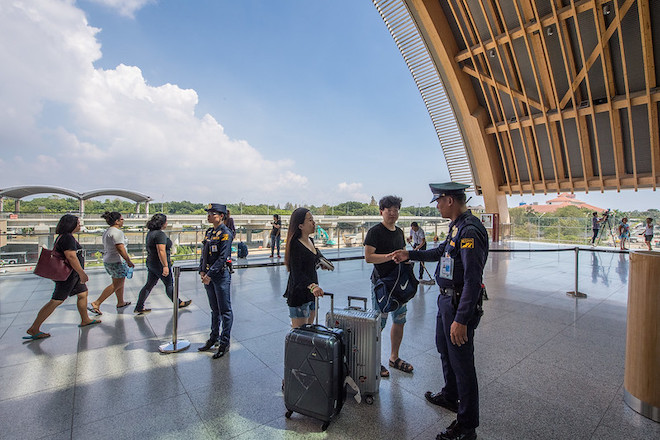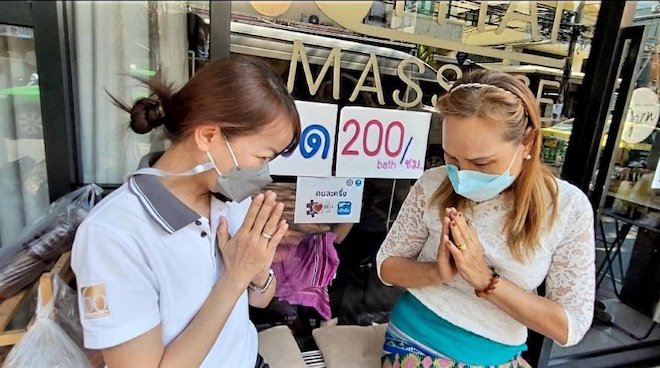
This blog post is published in collaboration with the Pacific Asia Travel Association.
Amid a whirlwind of news and activities, three topics have been recurring for me in meetings, conversations and events—the complexities of travel reopening, vaccine equity, and women and their role in a sustainable travel recovery.
First, in the world of Omicron versus travel—it has been a period of mixed messages and cautious optimism. A spate of markets across Asia-Pacific announced easing travel restrictions and border requirements (each to varying degrees and specifics). Early in the year, the region experienced the Omicron-fueled tidal wave of cases which started late last year in Western nations. As the World Health Organization (WHO) Europe head described it, "a tidal wave moving West to East", markets in Asia are to varying degrees rapidly rising in cases, while markets in the West are a mixed bag of subsiding and rising. What makes this even more opaque is that healthcare experts estimate case statistics in each region were likely under-reported by 5 to 10 times. While some Western countries are throwing off their mask requirements, you will read health experts advising, “time to upgrade your masks." An article in Bloomberg gave what I believe was one of the most accurate snapshots of our public health situation in the wake of Omicron.
Travel reopening
In this context, as the travel industry, we need to find opportunities to reopen travel quickly, efficiently, and responsibly so travel stays open and we are no longer viewed as high risk. Especially during my recent multi-country/multi-region journey, I saw opportunities to streamline measures while respecting practical risk mitigation considerations. I had an interesting discussion with Asian Development Bank officials on the complexities of reopening markets in the Pacific Islands, Micronesia, and other locations to tourism and the fact there is no easy "playbook" yet on how to best restart the travel engine.
Government officials across the region have the unenviable position of weighing public health risks versus the impact to livelihoods and broad scale economic impacts. Our government members-only Destination Recovery Insight sessions, hosted in partnership with World Bank, have been our first approach in helping destinations accelerate their learnings. We will continue to drive this further and seek additional forums to expedite and streamline travel restarts.
WHO has stated that travel bans are ineffective—detection of a rapidly spreading virus has too long a lag time for it to be effective and, in fact, it hinders. So where is the right balance between openings and protocols ? Each market is weighing this through their filters of cultural norms, politics, economics, and resources. I am observing an easing to a more risk-based approach here in Singapore and some other markets. For PATA, we will continue to seek ways to support members in expediting and smoothing the opening of destinations. One simple measure—wearing a good mask (i.e. KN95's and KF94's) and wearing it properly is probably one of the simplest measures we can all take to protect ourselves and our communities in higher risk circumstances (crowded, indoor spaces) at home and when travelling.
Vaccine equity
Travel industry news sites SKIFT and TTG have approached me to speak about PATA's advocacy for vaccine equity and its importance in driving a global recovery. As noted in the SKIFT article and TTG interview, with the demand for boosters, the challenge of getting vaccines to low-income, less developed nations gets heightened. The pandemic is not over until it is over everywhere. I was cheered with the news that two researchers out of Texas (Peter Hotez and microbiologist Maria Elena Bottazzi) have created an inexpensive COVID-19 vaccine (Corbevax) and made it license-free for less developed nations to manufacture. THAT's how you properly respond to a global, humanitarian crisis. Very appropriately, both scientists have just been nominated for the Nobel Peace Prize.

Women in tourism
I have been frequently approached on the topic of women in travel given the fact that women have been the hardest hit (particularly in the Asia and the Pacific) with the industry downturn. Our industry in this region is comprised of 60% women and, since they predominate the front line service roles, have been disproportionately among the hardest hit with the industry downturn. We piloted an Informal Workers Support Project in Thailand providing health and safety and business advisory to 500 individuals in this segment. We would love to see this replicated across the region and would welcome sponsors to expand the program.
The current situation is complex but PATA is working to identify and develop every bright spot we can to help the industry emerge stronger and better.
This blog post was first published by PATA.
 Liz Ortiguera
Liz Ortiguera
Chief Executive Officer
Pacific Asia Travel Association
Liz Ortiguera has more than 25 years of global experience and expertise in general management, marketing, business development, and partner network management. She is passionate about innovation, business transformation, and community building. Her career spans several industries—travel/lifestyle, technology, financial services, and pharmaceuticals.


